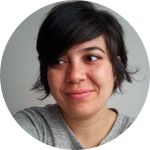About This Project
The pressing need to combat climate change has sparked interest in decarbonization and carbon capture. This project explores using ancestral sequence reconstruction (ASR) to enhance cadmium carbonic anhydrases (CDCAs) for efficient carbon capture. By reconstructing ancestral CDCA sequences, optimizing them, and characterizing their performance, this research aims to develop innovative solutions for sustainability challenges and practical implementation in diverse carbon capture scenarios.
Ask the Scientists
Join The DiscussionWhat is the context of this research?
The world urgently needs to reduce greenhouse gas emissions to combat climate change. The continuous release of CO2 and greenhouse gasses contributes to global warming, extreme weather events, and ecosystem degradation. To mitigate these effects and achieve a sustainable, carbon-neutral future by 20501, we must prioritize decarbonization and carbon capture. Carbonic anhydrases (CAs), enzymes that convert CO2 to bicarbonate ions in living organisms, are gaining traction for industrial and environmental decarbonization efforts2. When accessible, cadmium CAs (CDCA) can coordinate cadmium or zinc in their catalytic sites3, and could be interesting agents in coupled carbon capture and bioremediation activities, i.e. using polluted Cd-rich waters as source of Cd.
What is the significance of this project?
Ancestral sequence reconstruction (ASR) uses molecular biology and bioinformatics to reveal ancient protein sequences4. Focusing on enzymes, it improves catalytic efficiency by recreating ancient enzyme sequences5, enhancing performance in CO2 capture when applied to CDCAs. These resurrected CDCAs (rCDCAs) can be optimized for specific conditions, such as temperature and pressure, while providing enhanced stability, thus reducing long-term operational costs. This approach reduces energy consumption, and represents innovative biotechnological solutions for addressing climate change and management of polluted waters. It's adaptable to various scenarios, like air or oceanic carbon capture when immobilized in specific supports, trapping toxic cd atoms from polluted waters.
What are the goals of the project?
The first goal is reconstructing ancestral CDCA sequences from various evolutionary timepoints. This forms the basis for subsequent improvements, potentially involving enhanced catalytic efficiency by modifying active sites, substrate affinity, and reaction rates. Fine-tuning for specific environmental conditions relevant to carbon capture, such as temperature and pH, is crucial. We will conduct biochemical and functional tests on rCDCAs, including kinetic studies, substrate specificity assessments, and stability tests, to evaluate their performance. We will assess the potential release of toxic Cd atoms from rCDCAs and their effective Cd sequestration. Compatibility with current carbon capture technologies and integration feasibility will be explored for practicality.
Budget
n/a
 Project Timeline
Project Timeline
n/a
Jun 30, 2025
Project Completion
Meet the Team
Team Bio
The Biomolecular Nanotechnology group specializes in protein engineering to create functional nanostructures and bioinspired materials for nanobiotech and nanomedicine. We aim to build versatile platforms using simple protein blocks for various protein-based hybrid nanostructures. Our methods involve computational and rational design, protein engineering, and bioconjugation to produce molecular hybrids combining protein frameworks with metals, nanoparticles, and organic compounds.
Elena López
Postdoctoral Researcher in the field of Protein Engineering. I’m particularly interested in understanding the intersection of metallic nanocomponents and proteins, design proteins with new properties and build new bionanotools for sensing, imaging, diagnostics and bioelectronics.
Project Backers
- 0Backers
- 0%Funded
- $0Total Donations
- $0Average Donation
